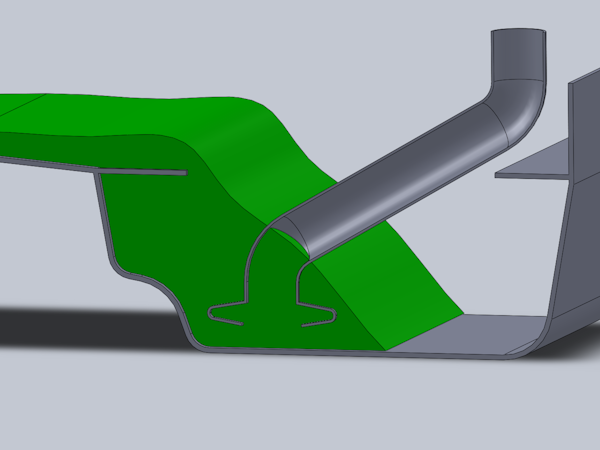
Back in 2018 I published a short article about oil pressure on the 2GR-FE, and since then I have offered an oil pan baffle for sale. That baffle helped, but I always felt that the oil control solution could be better, hopefully without the expense and complexity of a drysump. In 2025, I finally revisited the subject.
- Details
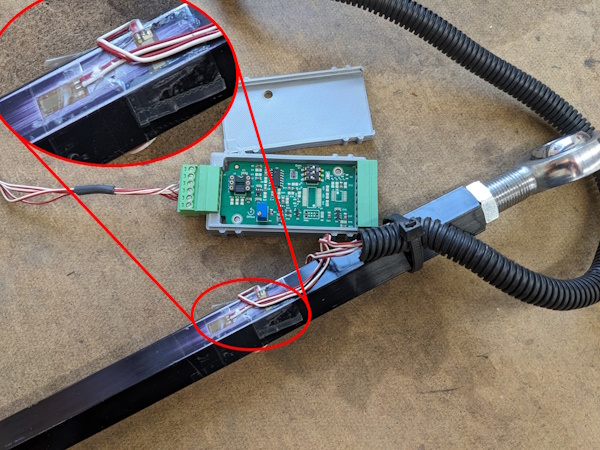
For years I have wanted to use strain gauges to directly measure the forces on suspension components on my car. But every search for the hardware to do so dead ended into laboratory grade items, with a laboratory grade price to match. So I made do with what I felt were high estimates of the loads that various parts would see and designed around those. Finally last year I stumbled onto the pieces I needed at a reasonable price!
- Details
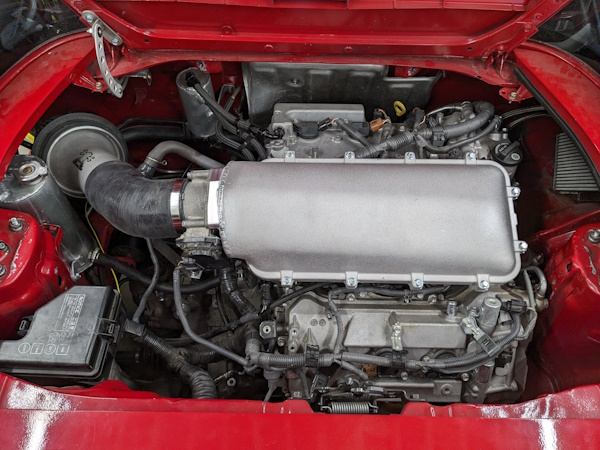
Marc at Frankenstein Motorworks used this intake as a key part of his 405whp NA build. I highly doubt I will ever build mine to that level, but I am very interested to see what it does on a more mild build.
- Details
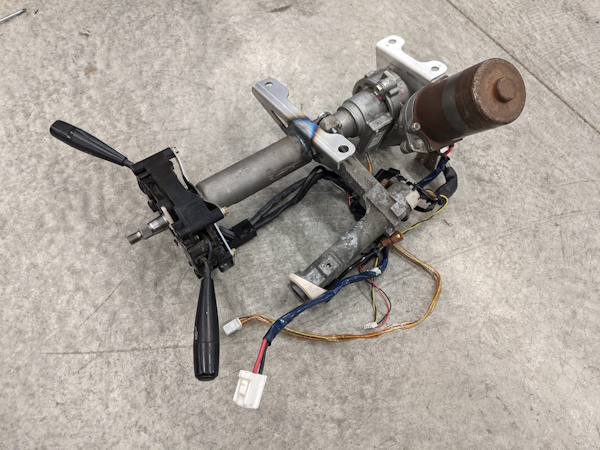
In the quest for weight reduction, the power steering system is often targeted. I tried my car without power steering once, and absolutely hated it! And yet, here I am looking for places to save weight...
- Details
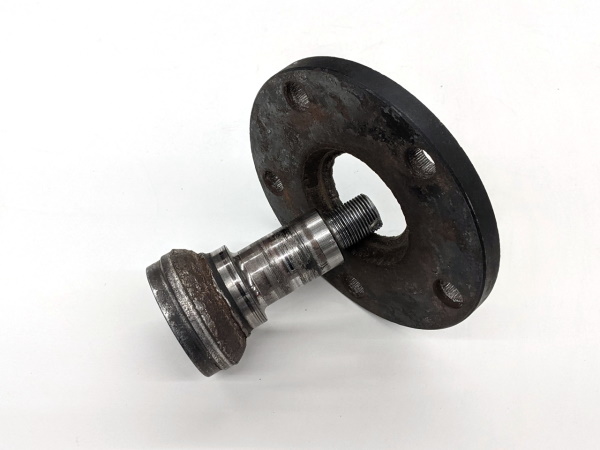
If you are serious about tracking your SW20 MR2, the strength of the front hubs is something you should be at least aware of, if not concerned about. This is one that broke on my car at an autocross! What follows is a bit of a deep dive into why they fail, and my solution to the problem.
- Details
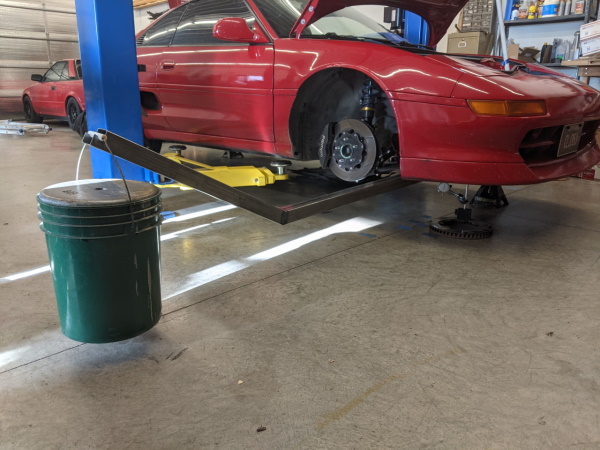
Ever wonder just how stiff (or not stiff?) the MR2 chassis is? Or how much difference various braces make to chassis stiffness? Me too!
- Details
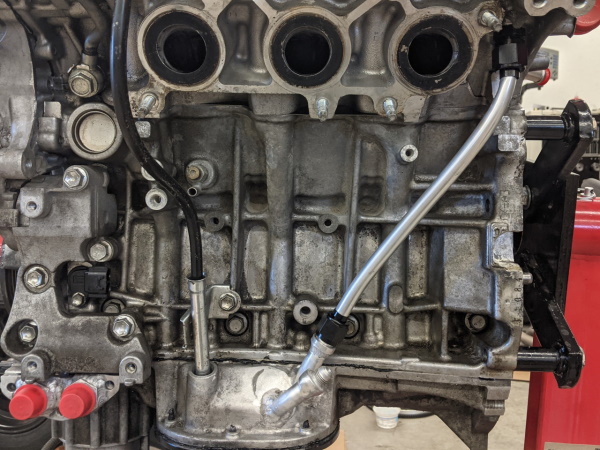
While I had my 2GR torn apart to fix and upgrade it, I took the opportunity to attempt some improvement on the oil drains from the cylinder heads.
- Details
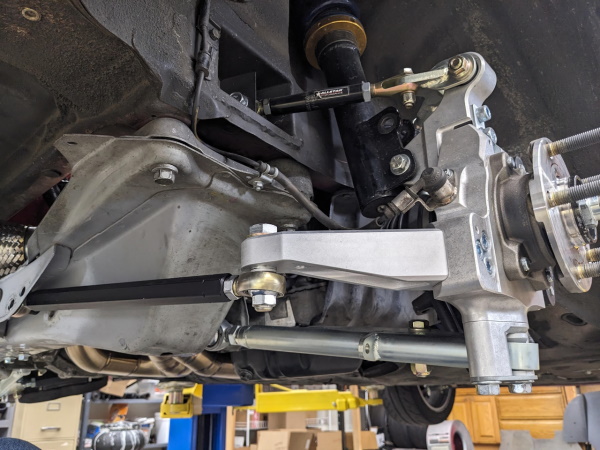
There's always room for improvement. My SLA rear suspension conversion worked well in the limited testing I have done, but there were just a few things design wise that I wasn't completely happy with. So on to V2.0.
- Details
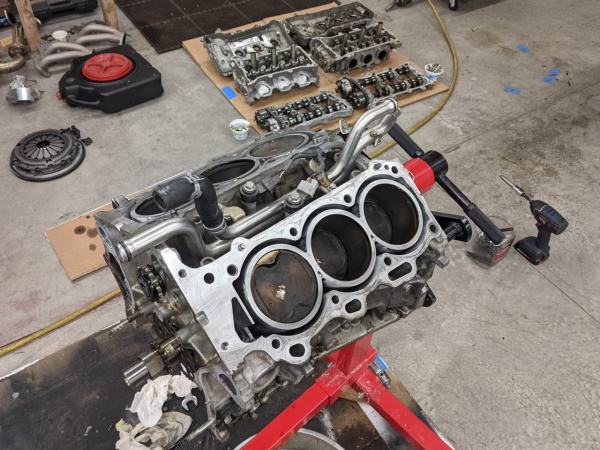
OK, confession time. Earlier this spring while working on another project, I did something dumb. Possibly the dumbest "little mistake" I have ever made while working on a car. While re-installing the lower intake runners on the 2GR-FE, I lost a nut. I'm sure you can guess where it went...
- Details
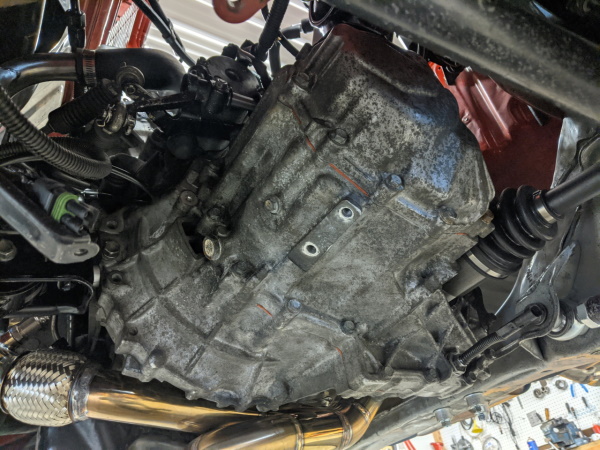
The E153 transmission from the MR2 Turbo is strong, but that strength is also it's greatest weakness. Large, heavy gears that generate a lot of heat, waste power, tear up synchros, and don't shift very nicely (especially the early boxes like mine). Plus they have become difficult to find on the used market, and rebuild parts are no longer available for the early years. There has to be another option!
- Details
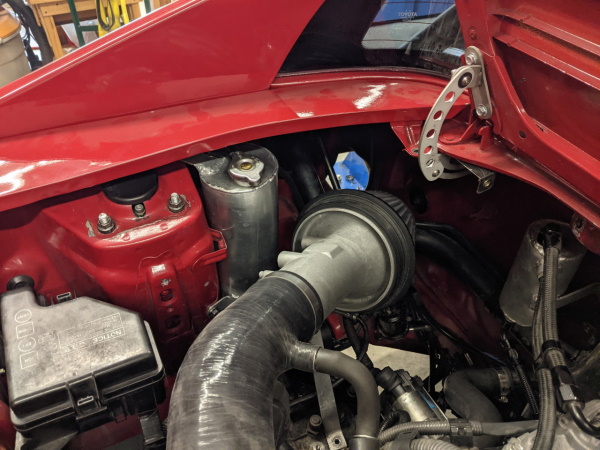
Bleeding the cooling system, every MR2 owner's favorite task, right? Not really... it's finicky, time consuming, and air left in the cooling system is a common cause of cooling problems. There has to be a better way!
- Details
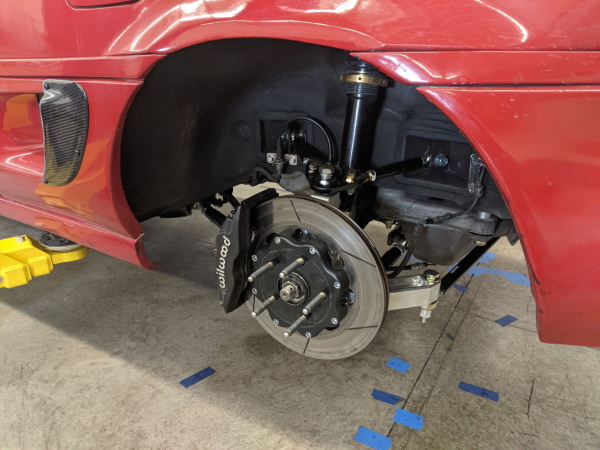
There's a lot of things to like about the MR2, but the McPherson strut rear suspension really isn't one of them. But that's so thoroughly baked into the design of the car that we couldn't possible change it, right?
Right?!?
- Details
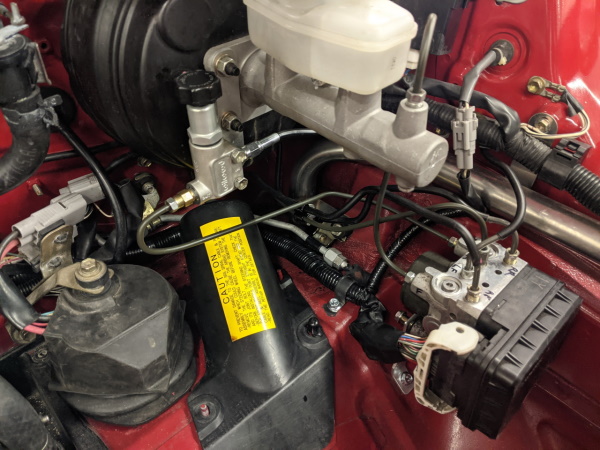
The ABS system in the MKII MR2 is known to be a bit... let's just say it was the best they could do in 1990... Toyota did improve it quite substantially in 93, and I had retrofitted a 93 ABS ECU into my first MR2, but that only helped so much. But what about something more modern? Like the system from the MR2 Spyder?
- Details
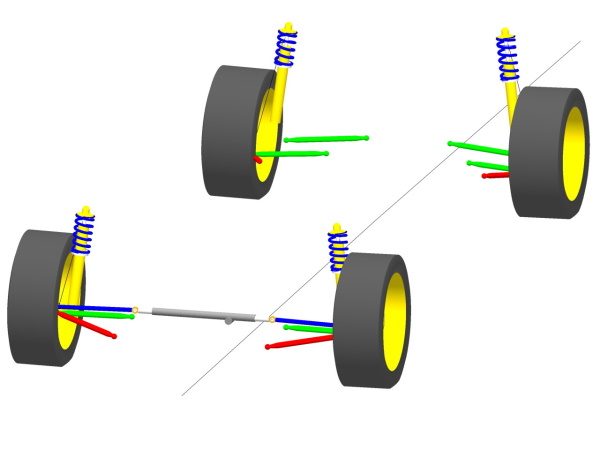
The basis of many of my products is a thorough analysis of the MKII MR2's suspension. This analysis was done using SusProg3D with data collected through careful measurement of the chassis and suspension components of my own car.
- Details
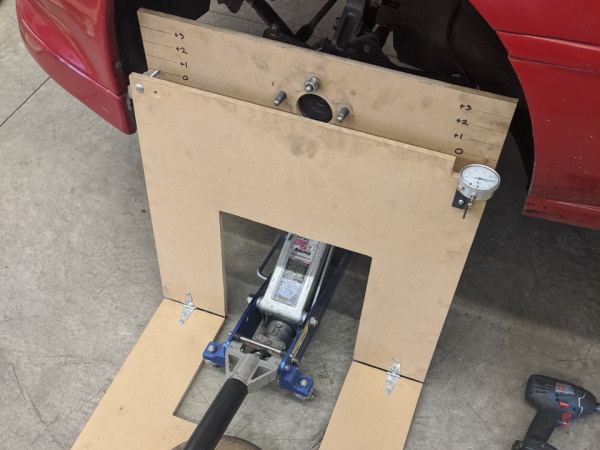
For years my suspension has been basically all of the parts that I sell, but not much of it was unique. Standard geometry kit, Koni coilovers with my top mounts, the control arms were the only "custom" pieces. Spring of 2020 I found myself with some extra time on my hands, and I seriously revisited my suspension model for the first time in years. Maybe I can improve things a bit...
- Details
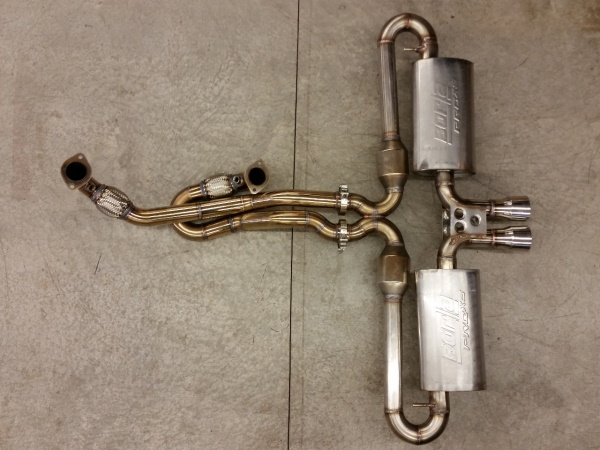
Almost since I first v6 swapped on my car, I have been reading about the performance benefits of a true dual exhaust with an x-pipe compared to the y-pipe I have been running. But I was skeptical. How much difference could it really make? Would I even be able to fit two pipes over the cross member? Finally I decided to give it a try.
- Details
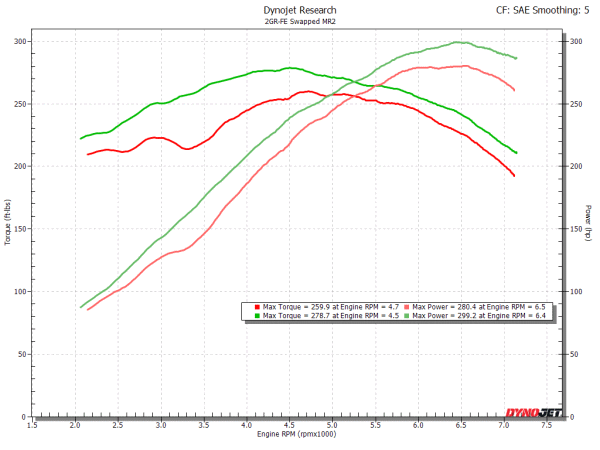
Toyota rates the 2GR at 269hp (at the flywheel), give or take a bit depending on the application. My swapped MR2 initially dyno'd 280hp (at the wheels). Assuming 15% drive train loss, that's 330hp at the flywheel, or a gain of 61hp vs stock and a specific output of 94hp per liter. Not bad for a stock motor with intake / headers / exhaust, but that doesn't mean there isn't room for improvement!
- Details
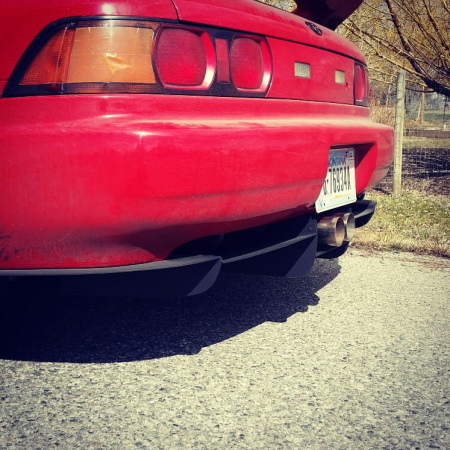
Building a (functional) rear diffuser has been on my list of things I wanted to do for a while, but getting it to fit nicely around the exhaust was always a problem. My new center exit exhaust solved that, so on to the diffuser build!
- Details
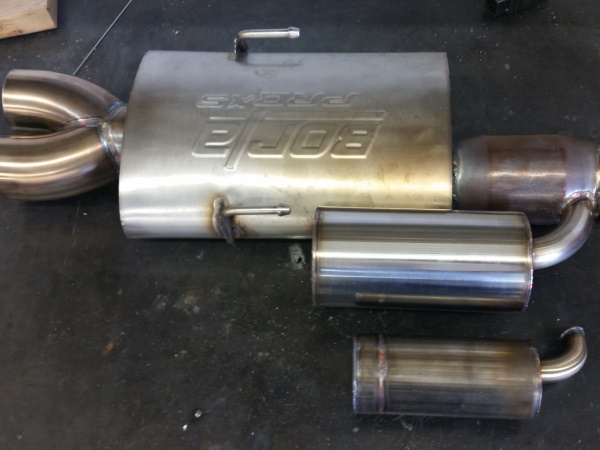
A few months ago I posted about a new exhaust that I built for my 2GR swapped MR2. It sounds great, it looks awesome (especially in combination with the rear diffuser that I built around it), but I very quickly found that it had one major drawback. TERRIBLE drone at about 2500rpm.
- Details
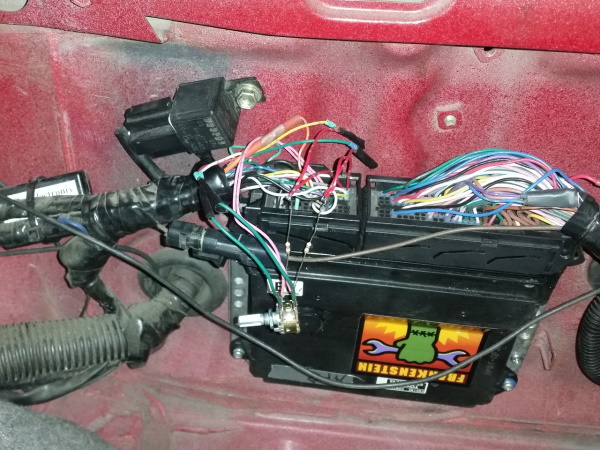
Have you found the electronic throttle on your 2GR swapped MR2 to be a little too sensitive? It turns out, there is a reason for that, and also a $15 solution!
- Details
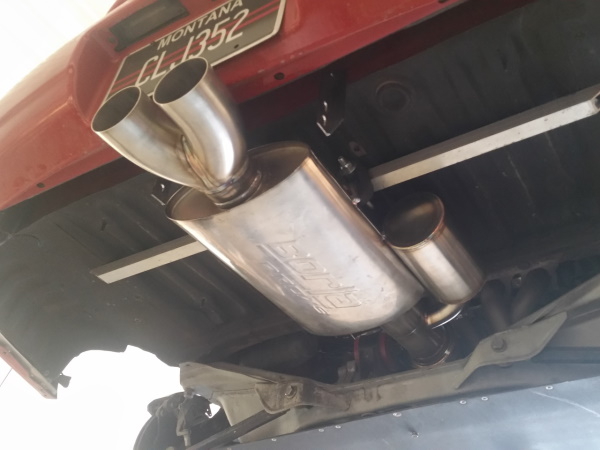
For a while now I have been wanting to build a new muffler section for my car, mostly to replace the 27lb Berk Technology muffler with something a bit lighter weight. From there the project evolved into a low profile, center exit design to better accommodate a rear diffuser that I would like to build some day. Having something unique is of course a plus as well.
- Details
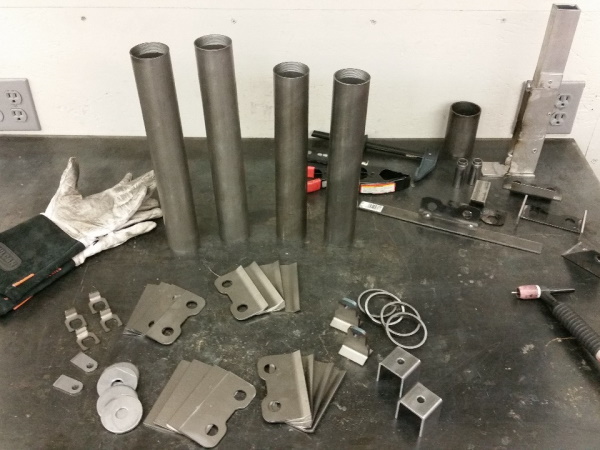
While building a set of my custom coilover housings recently, I thought that maybe people would like to see what the process of taking these from a pile of parts to a finished set of housings looks like. So here we go!
- Details
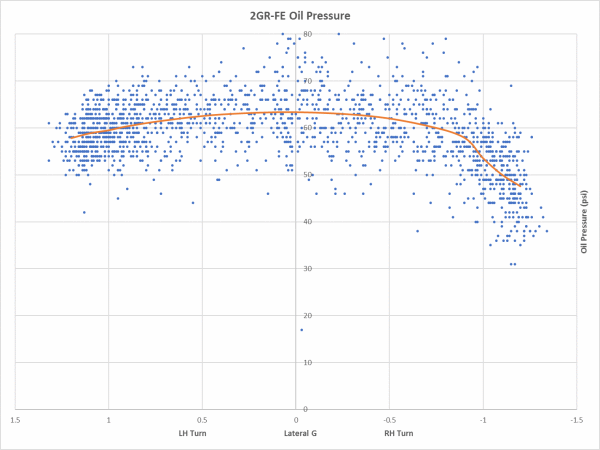
When I swapped the 2GR-FE v6 into my MR2, one of the little things I did was add an oil pressure sensor hooked up to my Race Capture Pro data logger. This has allowed me to log oil pressure for later analysis along side all of the other parameters that I log on track or at an autocross.
- Details
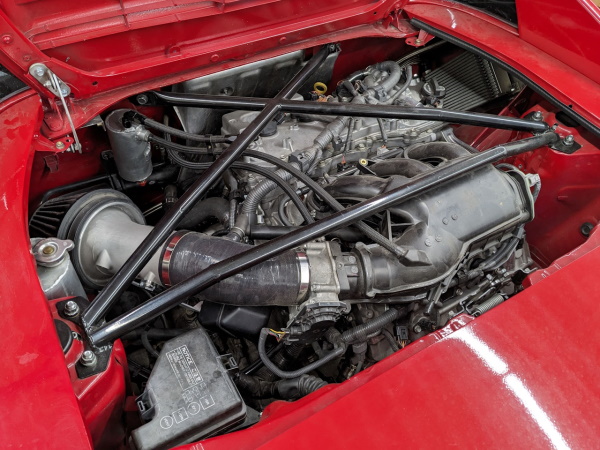
For quite a few years now I have been tempted by the idea of ditching my 3S-GTE turbo 4-cylinder and swapping in one of Toyota's newer v6 motors, namely the 3.5L 2GR-FE. But my 3S was still running great, and I had too much time, money, and effort invested in it over the years to drop it without a good reason.
- Details
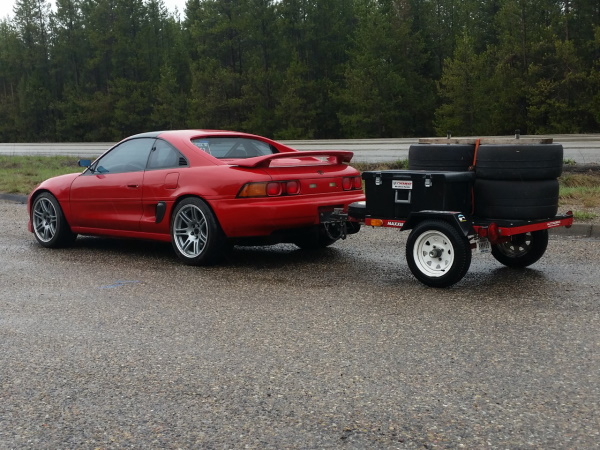
For a number of reasons, I have long resisted the idea of trailering my car to events. But, that doesn't mean I have been content to run street tires on the track or at an out-of-town autocross. The solution, of course, is a tire trailer!
- Details
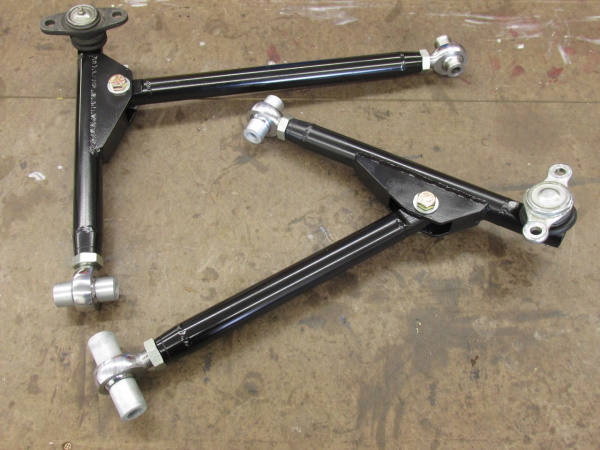
For quite some time now I have been wanting to build my own control arms for my car, and I finally did. I had three main goals here. Add some adjustability, improve the suspension geometry by lengthening the control arms, and hopefully drop some weight. Spoiler alert: two out of three isn't too bad! It all started with a design in SolidWorks (well several designs actually), and extensive stress analysis.
- Details
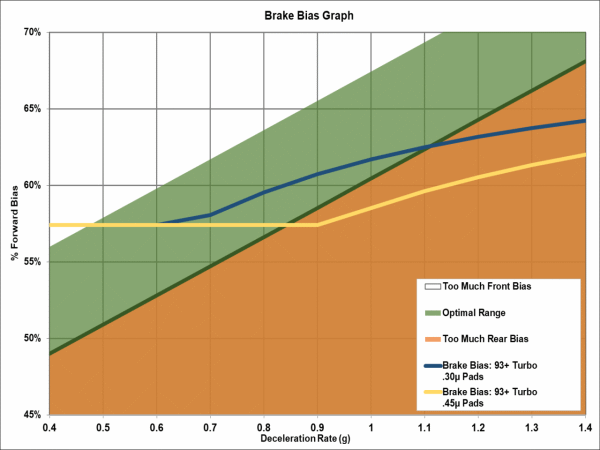
In the process of developing the Wilhelm Raceworks big brake kit, I have calculated the brake bias of numerous combinations of rotors, calipers, proportioning valves, pad friction values, etc. In the interest of better explaining why I make certain recommendations, the results of some of those calculations are outlined below.
- Details
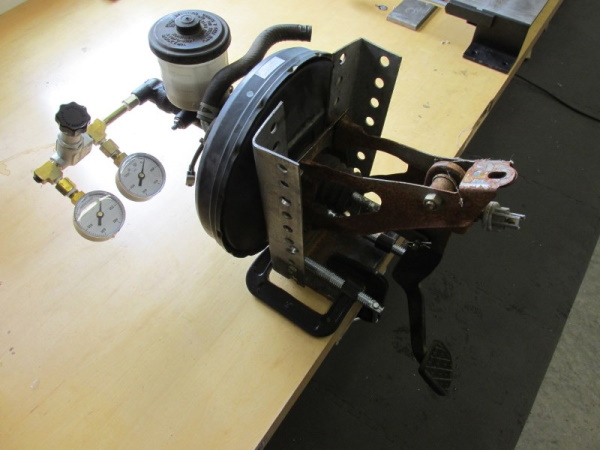
Those of you who have been following me for a while now have probably noticed that I like data. I prefer to measure, analysis, and calculate, rather than just guessing at things. What can I say, it's an engineer thing!
- Details
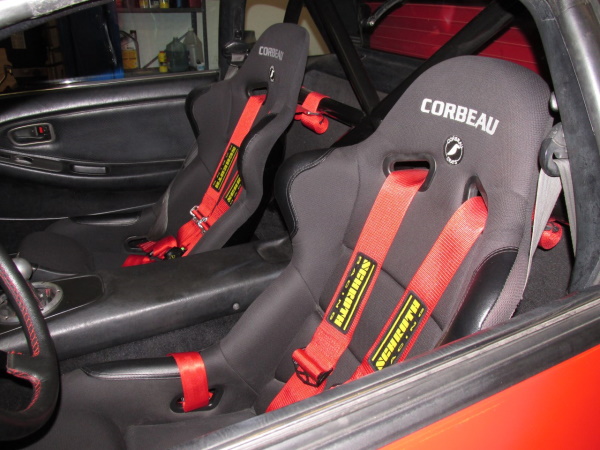
I wanted to build this car from the ground up to be primarily a track car. Given that, and given how my previous car met it's end, that meant starting with a roll bar. The big "hope I never need it" mod. And of course to go with that, good 6-point harnesses and bucket seats.
- Details
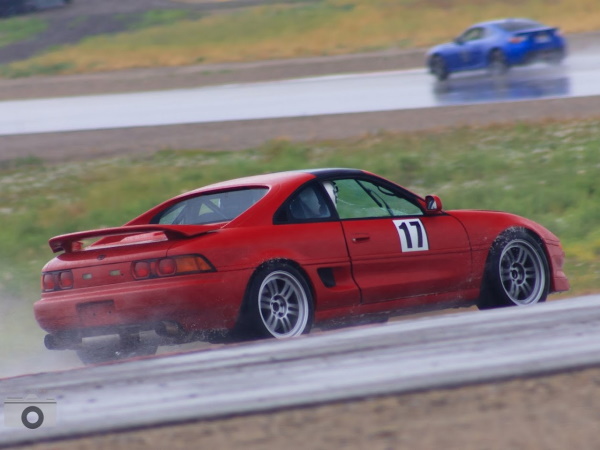
All in all, 2016 was a pretty good driving season. Lots of track time, and other than the very last day, no major issues.
- Details
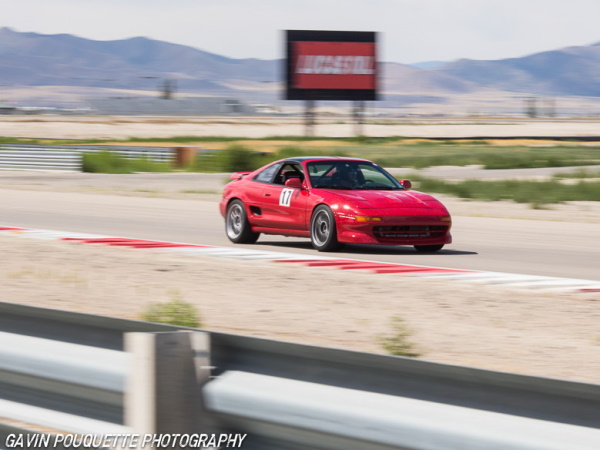
The last NASA Utah event of the year, the Tres Duro. Three track configurations in one day on Saturday (Outer, East, and Full), and then Sunday a full day of running the 4.5 mile, 23 turn full track. Awesome! Earlier in the year I made a comment about my car being "nearly flawlessly reliable"...
- Details
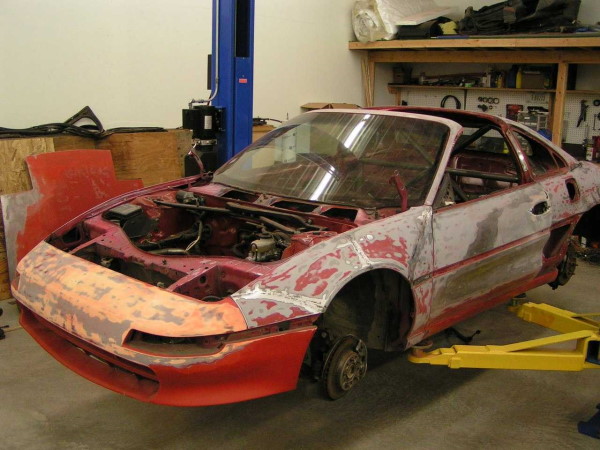
Where we left off I had mostly finished cutting the fenders, pulling them, and welding them back together. Quite a milestone, but a long ways to go.
- Details
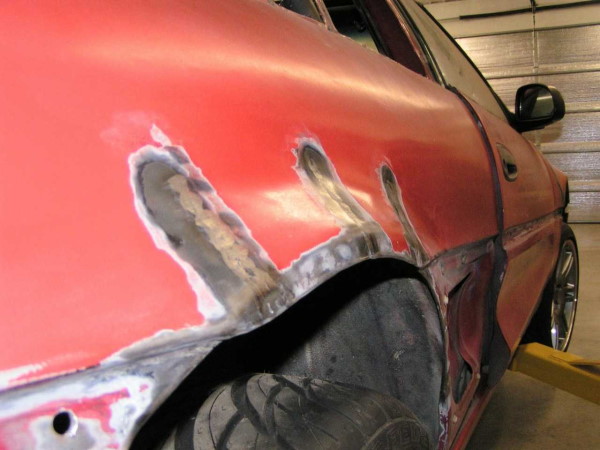
The "new" MR2 that I bought to replace my wrecked one was in rough shape. Really rough. But, I had some major plans for this car, and I wanted something I wouldn't feel bad cutting on!
- Details
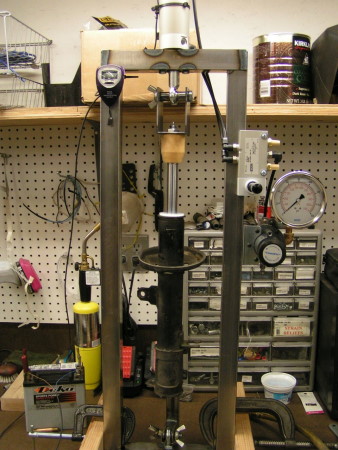
In the interest of learning more about the dampers I use in my coilovers I built my own pneumatic shock dyno during the winter of 2015, and began testing shocks.
- Details
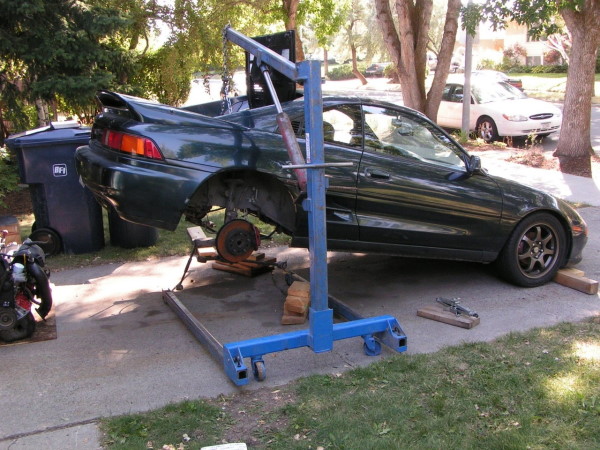
I bought my first MR2 in June of 2005. I had developed an interest in sports cars, specifically early 90's Japanese ones. I considered pretty much all of the options. 300zx, 3000GT / Stealth, DSM, 240sx, and probably a few others that I have since forgotten.
- Details
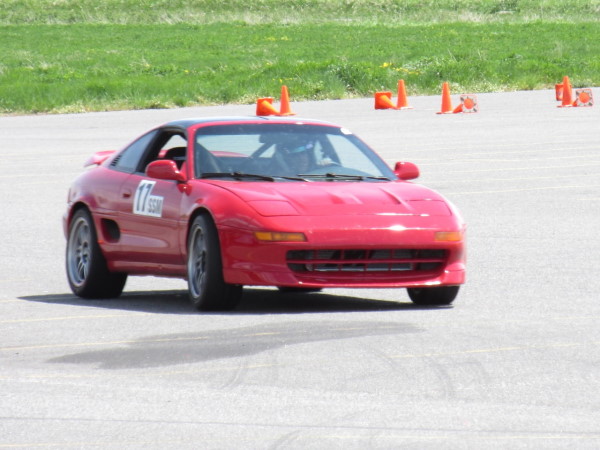
In case you don't know me, or haven't read my "about" page, my name is Alex Wilhelm. Owner, engineer, fabricator and test driver; Head of purchasing, shipping, marketing, and also head janitor at Wilhelm Raceworks. Really, it's just me. I have been driving and autocrossing / tracking MR2s since 2005, and building parts for them since 2010.
- Details
